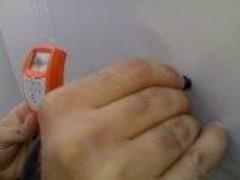Third Party Inspection Services Company
Third Party Inspection services refers to independent inspection
services that are provided by inspection agencies. This article supplies you
with information about TPI definition, TPI companies and also provides you with
third party independent inspection procedures for the different fix, rotary,
electrical and instrumental equipment.
In purchasing and procurement projects the sellers and vendors are first parties. The second parties are purchasers or buyers. First party inspection refers to quality control activities that are done by equipment vendors or sellers. Second party inspection refers to inspection activities that are done by equipment buyers or purchasers.
In fact, the first party is a seller and the second party is the buyer. So when you state second party inspection, it means that an inspection and quality control activities that are done by a buyer and when you indicate first party inspection, it means that an inspection and quality check that is done by a vendor in its manufacturing shop.
These quality controls and inspections are done based on approved design documents, Purchase Order and International standards. The Third Party Inspection services refers to independent inspection activities that are done by a Third Party Inspection Agency either hired by a buyer or seller but generally hired by the buyer.
ISO 1720 Definition for Third Party Inspection Services Company
The ISO 1720; - Requirements for the operation of various
types of bodies performing inspection- specifies characteristic of these kinds of
inspection agencies.
Based on these requirements, these agencies must be impartial and independent in their inspection activities and in their inspection reports and results.
All interested companies such as traders, buyers, sellers, engineering companies, construction companies must have access to the third party inspection services of these inspection companies.
Impartial and independence conditions are very important factors for third party Inspection companies. In this direction, ISO 17020 does not allow these companies to be participated or involved in any procurement, purchasing, construction, installation and even design activities.
They must only provide third party inspection services and noting else.

Based definition of the ISO 17020, these inspection companies are category A inspection organization. Based on this standard, there are two more inspection organizations that are not independent.
A category B inspection organization is an inspection department in a large-scale company that is involved in the design, procurement, construction, installation, etc. and this inspection department provides third party inspection services to its own company.
Usually a category B inspection organization is a quality control department in an engineering or EPC company. This department assists the company in procurement and purchasing projects and makes inspections on the equipment and materials that are purchased by its own company.
Example for Third Party Inspection Services Company in Oil and Gas Industry
Suggest an EPC company has a contract with an oil company for design, procurement, and construction of a desalting plant. Then the quality control department of this EPC Company inspects on the equipment and material that have been ordered by EPC contractor for this desalting plant. So this is what we name second party inspection and based the ISO 17020 is category B type inspection.
This inspection will not be enough by end-user or in this example, an oil company. The oil company will hire an independent third party inspection company or in other words, a category A inspection company to conduct inspection on the procured equipment and material by EPC company.
Sometimes the end-user or “oil company in this example” decides not to hire an independent third party inspection company by itself but mandates that the EPC Company to hire an independent inspection agency that is in their approved list.

Different projects have different procedures for handling inspection activities in their procurement projects. Sometimes the procured equipment is inspected by both parties, i.e. by EPC contractor quality control as well as by end-user third party inspection agency. In other word, equipment are inspected by category A and category B inspection organizations.
Based on ISO 17020 definition, there are also category C
inspection organizations. These inspection organizations are not too much. It refers to an inspection department of an engineering company that provide services to its
own procurement and purchasing projects as well as to other engineering
companies. Similar to the category B inspection organizations, these companies
also cannot be independent.
There are lots of scopes of work for Category A inspection agencies or in other words third party inspection services companies. One of them is Third Party Quality Inspection that refers to the quality part of work. In this part an inspection agency checks and makes sure that the quality of the commodity is as the same of purchase order specification.
The scope of work is determined by buyers and purchasers. Some of them require only a pre-shipment inspection and some other may mandate more stringent scope and demend their third party inspection agency to witness important tests and inspections such as material certificate review, material identification, welding inspection, NDE test review, dimensional control, hydro-static testing, mechanical running testing, performance testing, painting inspection, packing and marking inspection and loading inspection.
The scope of work for inspection and testing is defined through inspection and test plan (ITP). This is a very important document in purchasing and procurement projects. This document identifies the duty and task of each party regarding inspection during the manufacturing and construction process.
In the giant project, it is necessary that an inspection company or a category A inspection organization to expedite inspection activities. It is duty of inspection agency to check that to see if all inspections and tests are done with satisfactory results before issuing of inspection release notes.
The third party inspection company can use the ITP as a checklist to see if all inspection completed and their inspection visit reports are available.
It is a best practice that an inspection releases note to be referred to the purchase order number as well as to the inspection and test plan document number. The quantity also must be stated in release note if the commodity is going to be shipped partially.
It is the responsibility of the third party inspection services company to issue and submit an inspection visit report after each visit in manufacturer shop. The inspection date must be notified to the inspection agency, usually 7 working days in advance. It is the responsibility of the vendor to notify the TPI inspection services company. The quality control team of a manufacturer must check inspection and test plan frequently and when they see they have reached to a specific stage of manufacturing that needs a witness or hold point, then must notify inspector for a visit.
The communication channel between third party inspection services company, vendor and client must be set-up. This is typically done in Pre-Inspection meeting or Pre-Production meeting. In this meeting that is conducted before the commencement of the project, all parties will be attended in the meeting and discuss project coordination and communication.
All parties are responsible for performing and communicating based on what is agreed and confirmed in the meeting and Minute of Meeting.
The material inspection must be done based purchase order specification. The third party material stamp inspection is another essential task of inspection agencies. They check material conformity based on BSEN 10204 requirements for 3.1 and 3.2 certifications.
A 3.1 material certificate refers to the certificate that is issued by a material manufacturer, but a 3.2 certificate is a material certificate that is issued by the material manufacturer but approved by an independent inspection agency. It is necessary that inspection agency witness important test during of manufacturing process for approving such certificates.
Free newsletter!
Sign up to receive my monthly newsletter covering all the latest courses and updates.




New! Comments
Have your say about what you just read! Leave me a comment in the box below.